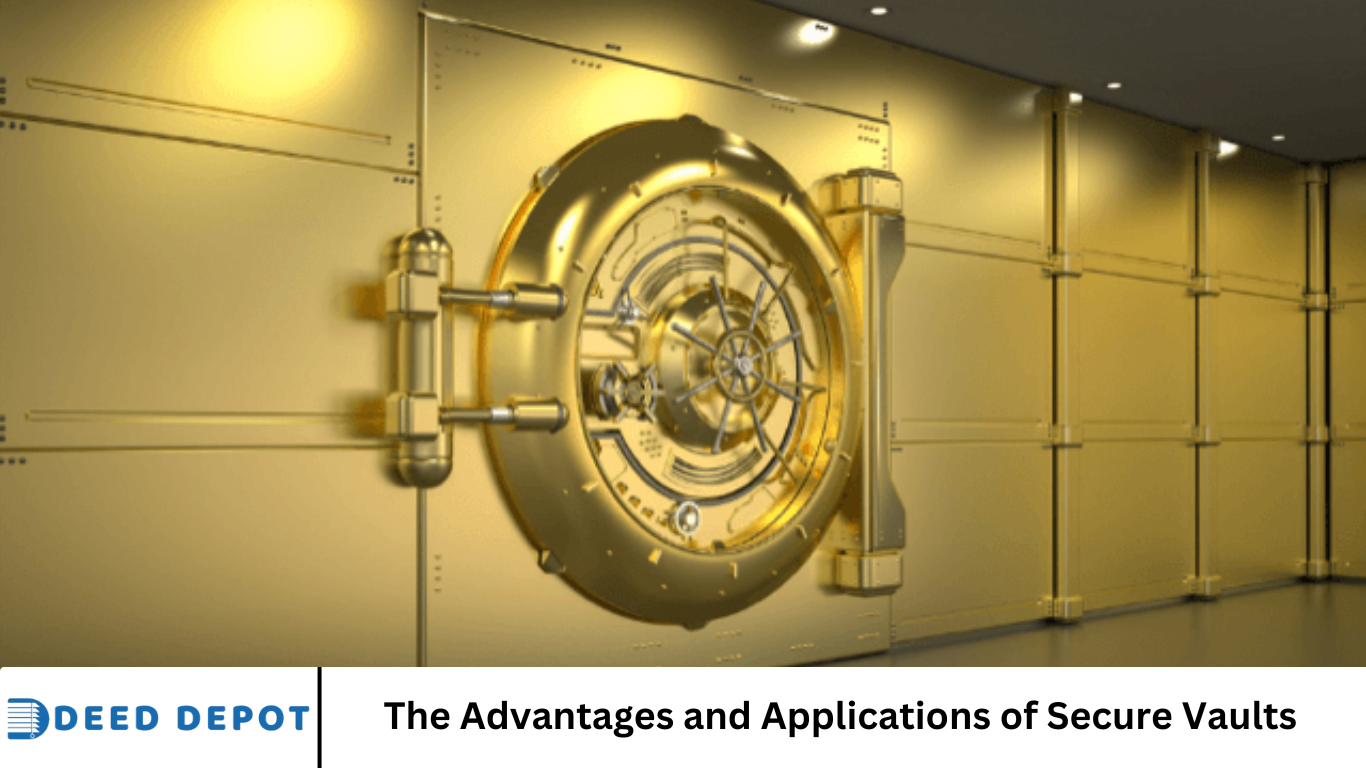Hyper-connected digital landscape, safeguarding sensitive data is not just a priority—it’s a necessity. With cyber threats growing in complexity and frequency, traditional security measures are no longer sufficient.
Organizations across industries must adopt advanced tools to protect their most critical assets. One such tool is the secure vault.
A secure vault is a fortified digital storage solution designed to provide enhanced protection for sensitive information, including credentials, cryptographic keys, and personally identifiable information (PII). This article explores the advantages of secure vaults and highlights their applications across different sectors.
More Read: Digital Vaults: Securing Your Assets and Data Online
What is a Secure Vault?
A secure vault is a specialized storage environment designed to provide high levels of security through encryption, access control, and monitoring. Secure vaults are often used in cybersecurity, financial services, healthcare, and any industry where data privacy is paramount.
Modern secure vaults go beyond simple encryption; they integrate features such as:
- Role-based access controls (RBAC)
- Audit logs
- Multi-factor authentication (MFA)
- Data redundancy and failover support
- Integration with identity and access management (IAM) systems
These features ensure that data stored in the vault remains protected against both internal and external threats.
Advantages of Secure Vaults
1. Enhanced Data Security
At the core of secure vaults is robust encryption. All data stored is encrypted at rest and in transit, ensuring that even if intercepted or accessed without permission, it remains unreadable. Vaults also employ advanced algorithms and secure key management to protect sensitive information.
2. Access Control and Monitoring
Secure vaults allow fine-grained control over who can access specific pieces of information. With RBAC and MFA, only authorized personnel can interact with sensitive data. Additionally, all access attempts are logged, providing full visibility and traceability for auditing and compliance.
3. Regulatory Compliance
Industries like finance, healthcare, and government are subject to strict regulations (e.g., GDPR, HIPAA, PCI-DSS). Secure vaults help organizations meet these compliance standards by offering built-in features that support data integrity, confidentiality, and availability.
4. Centralized Credential Management
Managing passwords, API keys, and certificates across different environments can be chaotic and error-prone. Secure vaults centralize credential management, reducing the risk of leaks and simplifying administration.
5. Reduced Risk of Insider Threats
By limiting access to only what is necessary and logging all activity, secure vaults mitigate the risk posed by internal actors. Sensitive information is no longer accessible to everyone, making it easier to detect and prevent malicious behavior.
6. Integration and Automation
Many modern secure vaults offer APIs and SDKs, allowing seamless integration with DevOps pipelines, cloud services, and security operations centers (SOCs). This promotes automation, reduces human error, and accelerates development cycles without compromising security.
7. Disaster Recovery and Business Continuity
High availability, redundancy, and backup capabilities ensure that even in the event of a system failure or cyberattack, data stored in secure vaults remains accessible and intact.
Applications of Secure Vaults
Secure vaults are versatile tools used in a wide range of applications. Here are some of the most common use cases across different sectors:
1. Enterprise IT and DevOps
In IT operations, secure vaults are used to store and manage secrets such as SSH keys, tokens, and credentials. This practice is essential in CI/CD (Continuous Integration/Continuous Deployment) environments where automation and security must go hand-in-hand.
2. Financial Services
Banks and financial institutions use secure vaults to protect customer data, transaction information, and encryption keys. This is critical for complying with financial regulations and preventing fraud.
3. Healthcare
In healthcare, secure vaults ensure the confidentiality of Electronic Health Records (EHR), medical histories, and insurance details. With regulations like HIPAA in place, vaults help organizations safeguard patient data.
4. Cloud Infrastructure Security
Cloud environments are dynamic and complex. Secure vaults help manage access credentials and security certificates, reducing the attack surface and improving security posture.
5. Government and Defense
Government agencies and defense contractors handle classified and sensitive data. Secure vaults provide the security architecture needed to meet national and international security requirements.
6. E-commerce and Retail
Online retailers use secure vaults to protect payment information, customer credentials, and loyalty program data. Ensuring the security of this data builds trust and reduces the risk of costly data breaches.
7. Legal and Professional Services
Law firms and consultants often deal with confidential client information. Secure vaults help ensure that sensitive legal documents and communications are stored securely.
Choosing the Right Secure Vault
When evaluating a secure vault solution, consider the following factors:
- Security Features: Look for strong encryption, access control, and monitoring capabilities.
- Scalability: The solution should grow with your organization.
- Compliance Support: Ensure it helps meet industry-specific regulatory requirements.
- Integration: Must integrate smoothly with existing infrastructure and workflows.
- Usability: An intuitive interface and good documentation make adoption easier.
Popular secure vault solutions include:
- HashiCorp Vault
- AWS Secrets Manager
- Azure Key Vault
- Google Cloud Secret Manager
- CyberArk
Best Practices for Implementing Secure Vaults
To get the most out of your secure vault solution, follow these best practices:
1. Classify and Prioritize Data
Identify what data is most critical and needs to be stored in a secure vault. Not all data requires the same level of protection.
2. Limit Access Using the Principle of Least Privilege
Only allow access to individuals who absolutely need it to perform their job duties.
3. Enable Continuous Monitoring
Use logs and alerts to monitor access patterns and detect anomalies in real-time.
4. Regularly Rotate Secrets
Automate the rotation of passwords and keys to minimize the window of vulnerability.
5. Test Disaster Recovery Plans
Ensure that you can quickly recover your data in the event of a system failure or breach.
6. Keep Software Updated
Regularly update your secure vault solution to patch vulnerabilities and enhance functionality.
Frequently Asked Question
What is a secure vault and how does it work?
A secure vault is a digital storage system that protects sensitive information such as credentials, encryption keys, and confidential data. It uses encryption, access controls, and monitoring tools to ensure that only authorized users can access the stored data.
Why are secure vaults important for data protection?
Secure vaults provide an extra layer of security by encrypting data at rest and in transit, limiting access through role-based controls, and logging all activities. This significantly reduces the risk of data breaches and unauthorized access.
What industries benefit most from using secure vaults?
Industries like finance, healthcare, government, IT, and e-commerce benefit greatly. Any sector handling confidential or regulated data can improve its security posture by implementing secure vaults.
How do secure vaults help with compliance?
Secure vaults support compliance with regulations like GDPR, HIPAA, and PCI-DSS by offering features such as data encryption, access auditing, and secure credential management—all of which are often required by regulatory frameworks.
Can secure vaults be integrated with existing systems?
Yes. Most modern secure vaults offer APIs, SDKs, and plug-ins that integrate with cloud platforms, DevOps pipelines, identity providers, and monitoring tools, allowing seamless adoption within your infrastructure.
What’s the difference between a password manager and a secure vault?
While both store credentials, password managers are typically designed for individual users, focusing on website logins. Secure vaults are enterprise-grade solutions that store a broader range of sensitive data and support granular access controls, compliance, and integration with enterprise systems.
How do I choose the right secure vault solution for my organization?
Look for a solution that offers strong encryption, scalable architecture, easy integration, compliance support, and good usability. Popular options include HashiCorp Vault, AWS Secrets Manager, Azure Key Vault, and CyberArk.
Conclusion
Secure vaults have emerged as essential tools in the fight against cyber threats. They offer robust data protection, help maintain compliance, and reduce the risk of insider threats and unauthorized access. From financial institutions and healthcare providers to government agencies and e-commerce platforms, the applications of secure vaults are vast and varied. Investing in a secure vault solution is not just a good security practice—it’s a strategic move toward a more resilient, compliant, and secure organization.


